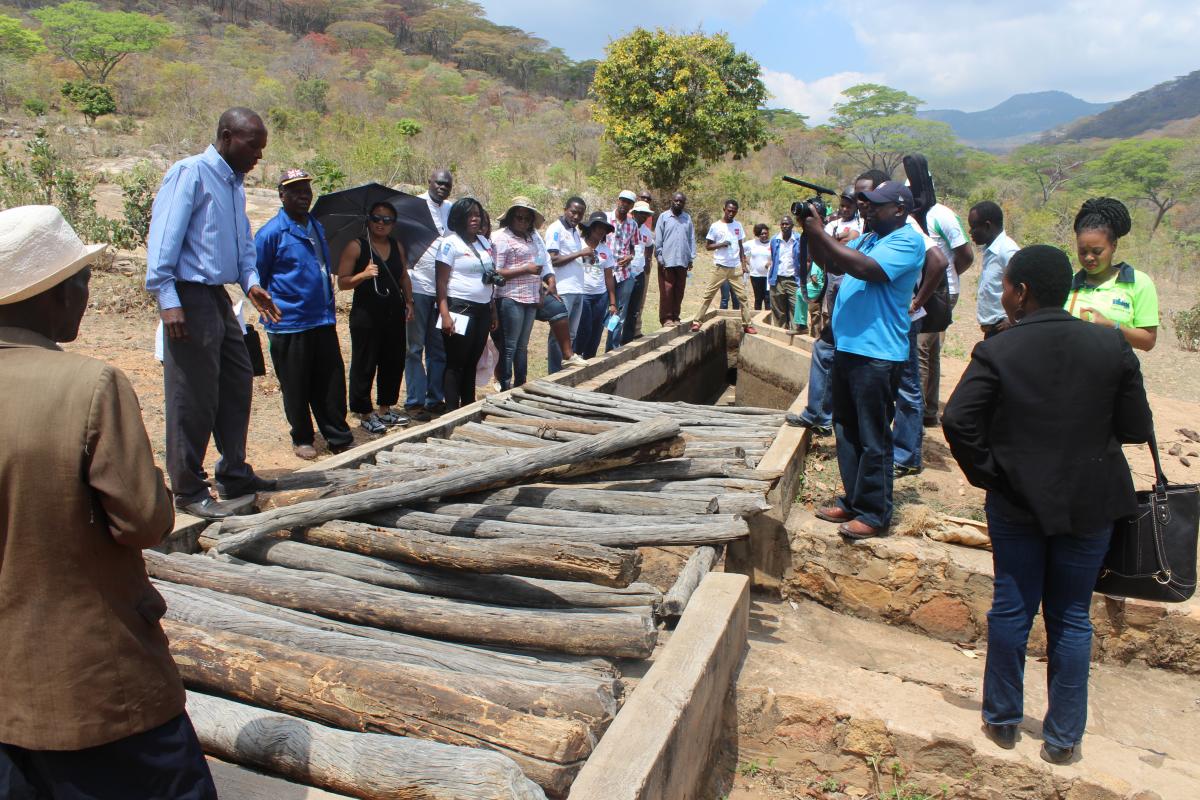Hivos Southern Africa in partnership with Practical Action and Zimbabwe Environmental Regional Organisation (ZERO) recently organised a learning tour to a community energy project in the Eastern Highlands, Zimbabwe.
The community outreach exposed Hivos’ partners under the Green and Inclusive Energy (GIE) programme, journalists and creatives to the successes and challenges that face community-based renewable energy projects.
The outreach was conducted in Chipendeke, a rural community, approximately 80 kilometres south of Mutare, Zimbabwe’s fourth largest city. It gave everyone a first-hand look at how renewable energy really affects people’s daily lives and livelihoods.
The Chipendeke Micro Hydro Scheme has a capacity to generate an average of 25 kilowatts, which supplies a clinic, primary school, business centre and a number of households.
Micro hydro, or small-scale hydro, is one of the most environmentally benign energy conversion options available. Unlike large-scale hydro power, it does not interfere significantly with river flows.
Before the implementation of the micro-hydro project, Chipendeke experienced high infant mortality rates due to birth complications among women delivering at night with the help of traditional midwives, some of whom had even been turned away due to lack of lighting.
Power has enabled the health centre to run incubators for newborn babies to protect them from hypothermia and pneumonia.
Student enrolment and staff levels have increased greatly at the local primary school. Students now find studying easier while teachers no longer shun the community.
“Access to electricity has helped our community significantly. At the clinic, we can now refrigerate our medication. The business centre has grown ever since we connected to the micro-hydro,” said Takesure Munyoro, 27, headman of the Chipendeke Village.
Access to clean, renewable energy has largely remained a challenge for many in Zimbabwe. To complicate matters, few people in civil society are familiar with renewable energy, regarding it as highly technical.
The community visit was therefore aimed at demystifying renewable energy and showing its practical, everyday benefits. For some of Hivos’ partners under the GIE programme, it was the first time they had ever seen a renewable energy project.
“This was a real eye opener. It made me realise that energy is critically vital to human development. I think policy alignment is key to enhancing the uptake of renewable energy in rural communities. I had my first experience of how access to energy contributes to health through what I saw at the clinic which gets its power supply from the micro hydro,” said Chamunorwa Mashoko, a health activist.
An assumption of the GIE project is that a well-informed civil society organisation translates into a more vibrant group of advocates that can demand accountability and advocate strongly for the increased adoption of renewable energy in Zimbabwe.
The programme’s nucleus is built on cooperation with and capacity strengthening of national civil society to effectively advocate in favour of green and inclusive policies.
Its strong focus on lobby seeks to influence ‘citizen agency’ and public debate to help push the transition from centralised energy production based on fossil fuels towards more decentralised and inclusive energy systems in which citizens take central stage.




